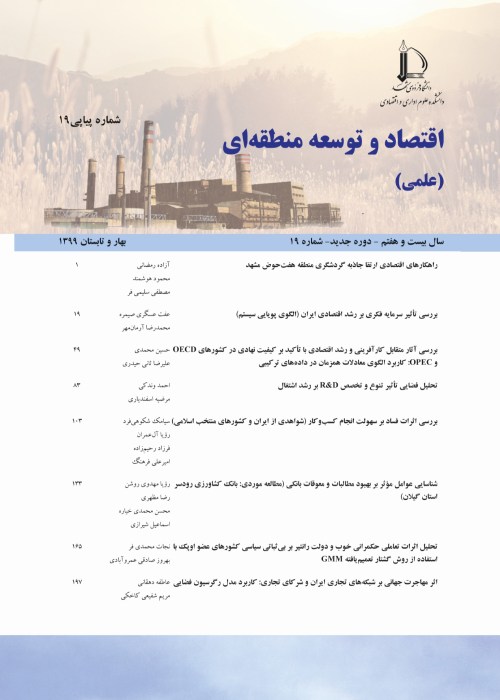The Effects of Good Governance and Political-Civil Liberties Indices on Environmental Performance Index (EPI): An Analysis of 101 Countries Worldwide
The environment over the past few decades has been one of the main and most important concerns of human societies. Hence, in recent years, the quality of the environment has become very important. The main objective of this paper is to study the impact of good governance and political-civil liberties indicators on the average of the Environmental Performance Index (EPI) over 101 countries during 2005-2015. The EPI index is chosen because it can represent the three dimensions of environmental quality, namely water, air, and soil. We focus on two
on the one hand a reduction in the environmental stresses to human health, and on the other hand the protection of ecosystems and natural resources. Among the institutional-political indices, good governance and political and civil liberties are chosen because of their combination and inclusiveness.
Theoretical frameworkThe environmental performance of a country is generally influenced by numerous factors. The literature on environmental sustainability has focused on several routes through which environmental performance could be affected. In the existing literature to explain how the economic factors affect the environmental performance, various theories such as the Kuznets Environmental Curve for the relationship between the per capita income level of a country and its environmental quality, Pollution Haven Hypothesis- the potential for environmental degradation in a country due to trade links and market failure due to externality and production and supply of public goods as a confirmation of government intervention, are used. Thus, based on the aforementioned theories and the literature review, among economic variables, per capita GDP, trade openness, and government economic policies (government investment) were selected. Among the institutional and social indexes, the good governance index and the human development index were selected because of their combination and inclusiveness.
In this study, we take the environmental performance variable as dependent variable, GDP per capita and trade openness as control variables, and the overall and combined index of good governance and its six dimensions (namely, control of corruption, voice and accountability, government effectiveness, regulatory quality, rule of law, political stability and absence of violence and political-civil liberties index) as independent variables, are used. Using different tests of panel data indicates that the one-side constant effects model was selected. Finally, due to the existence of heteroscedasticity and serial correlation based on the relevant tests, the GLS method was used.
The main results from the empirical analysis show that governance and political-civil liberties indicators are strongly and directly related to the EPI policy. Broadly speaking, the coefficients of GDP per capita (YP), trade openness (TR), political-civil liberties (CL), good governance (GG), government effectiveness (GE), and rule of law (RL) are statistically significant and positive and support the theory. The significant positive effect of GDP per capita and negative significant effect of quadratic GDP per capita on environmental performance support Kuznets Hypothesis. This study categorizes the share of each component of good governance index on the environmental performance in the selected countries. The results show that YP, TR, CL, GG, GE, and RL contributes to EPI 0.58, 0.015, 2.9, 6, 2.5 AND 5.3 respectively. Therefore, by one unit improvement in YP, TR, CL, GG, GE, and RL the environmental performance will be about 0.58, 0.015, 2.9, 6, 2.5 and 5.3 points better.
The findings obtained in this research have increased our knowledge of the EPI, through obtaining a picture of the environmental situation on a global level. Regarding the economic variable GDP and TR, our findings allow us to affirm that a higher level of good governance (especially rule of law) and political-civil liberties are strongly linked to the environmental performance of the countries. Therefore, planners and policymakers in selected countries should focus on the variables mentioned above which have more effects on the improvement of environmental performance. This finding leads us to posit an open topic for future research, which should include from a multivariate perspective more variables that may influence countries’ environmental performance, such as, technological development, research and innovation, and industrial structure.
- حق عضویت دریافتی صرف حمایت از نشریات عضو و نگهداری، تکمیل و توسعه مگیران میشود.
- پرداخت حق اشتراک و دانلود مقالات اجازه بازنشر آن در سایر رسانههای چاپی و دیجیتال را به کاربر نمیدهد.



